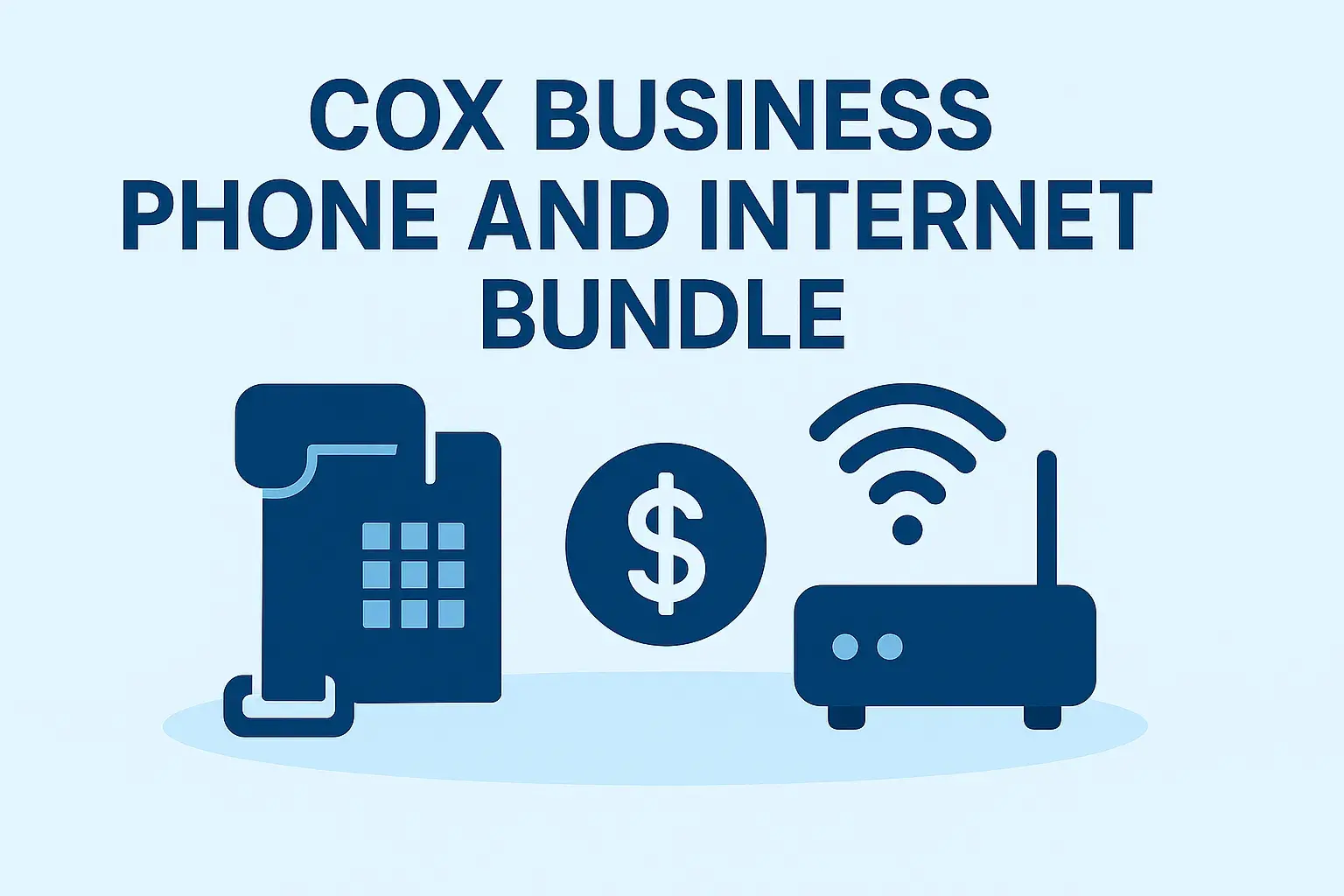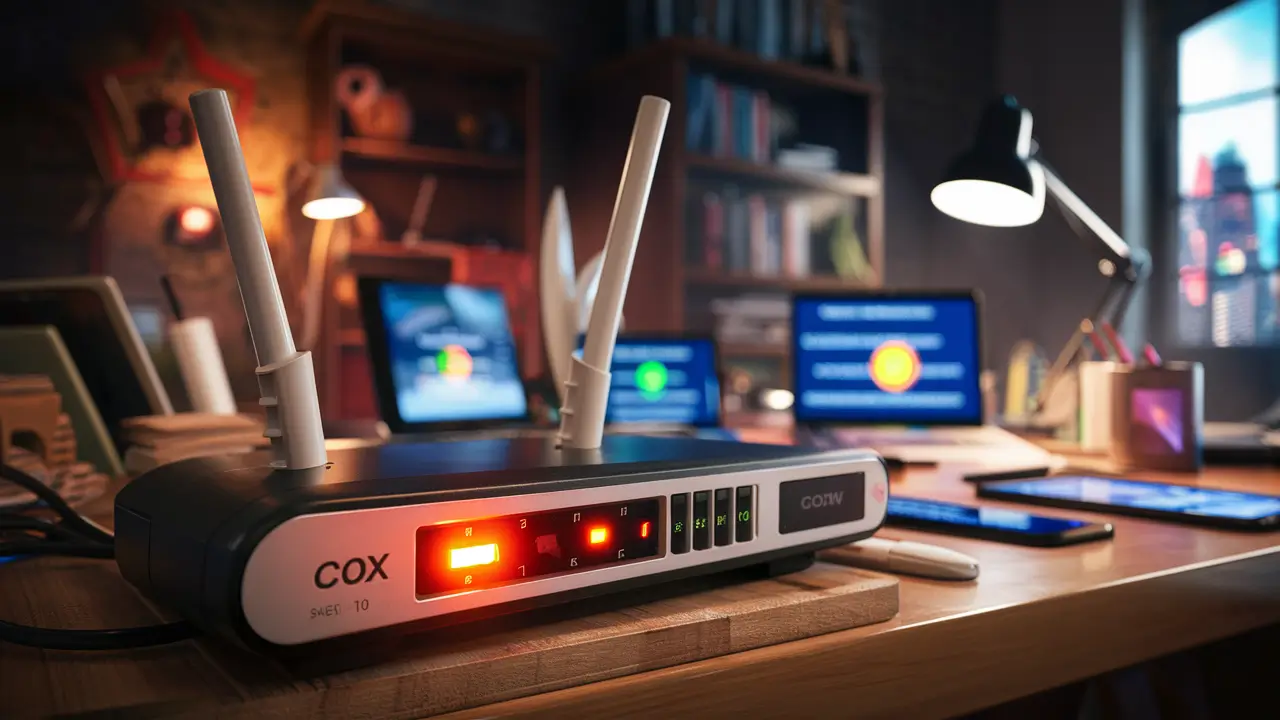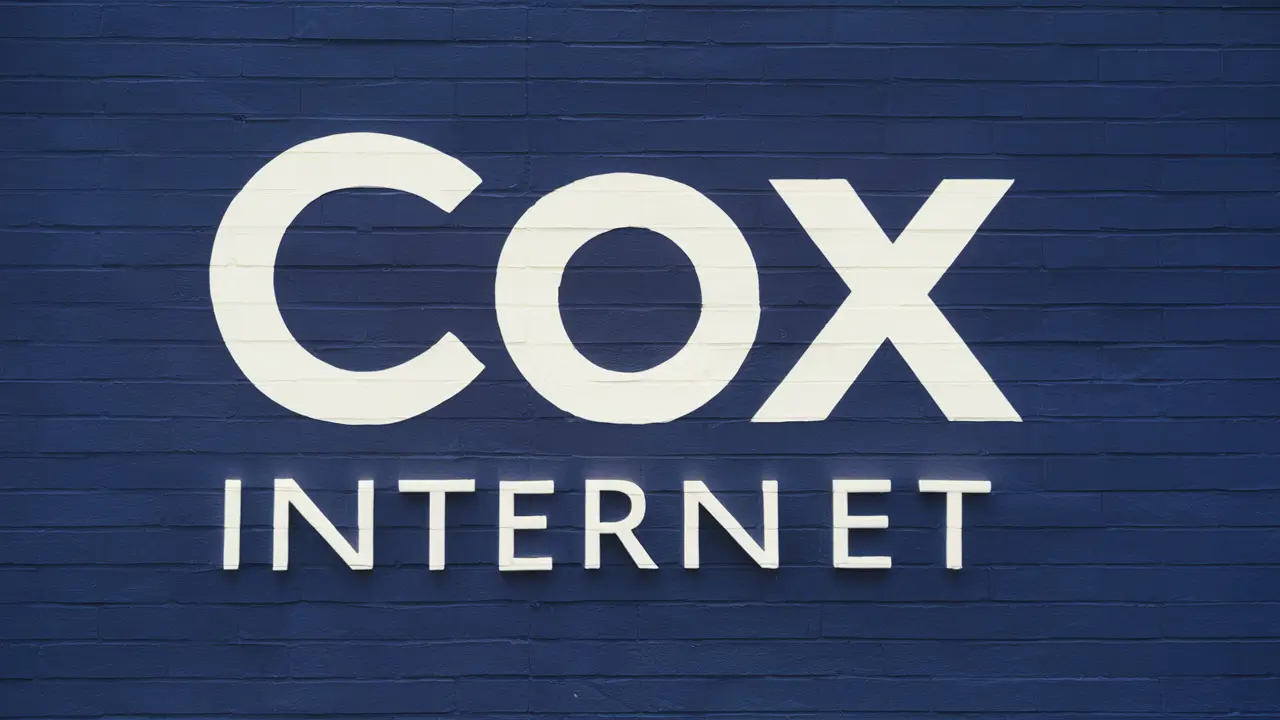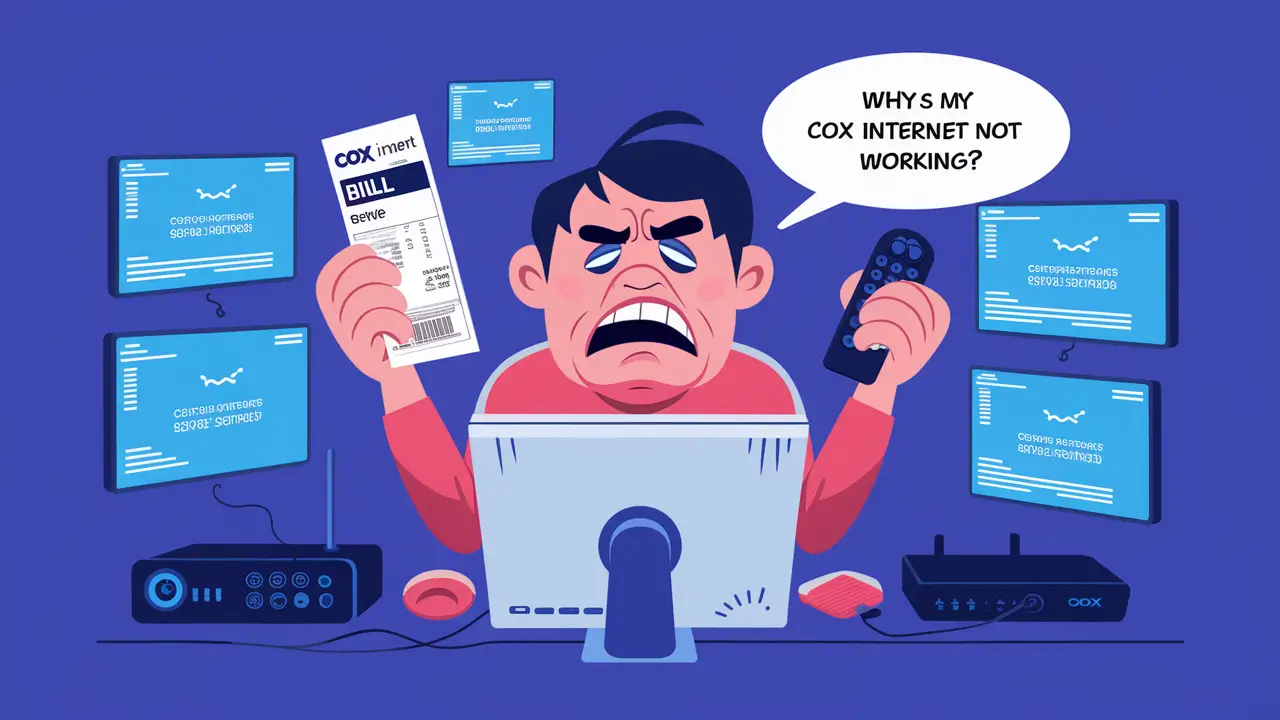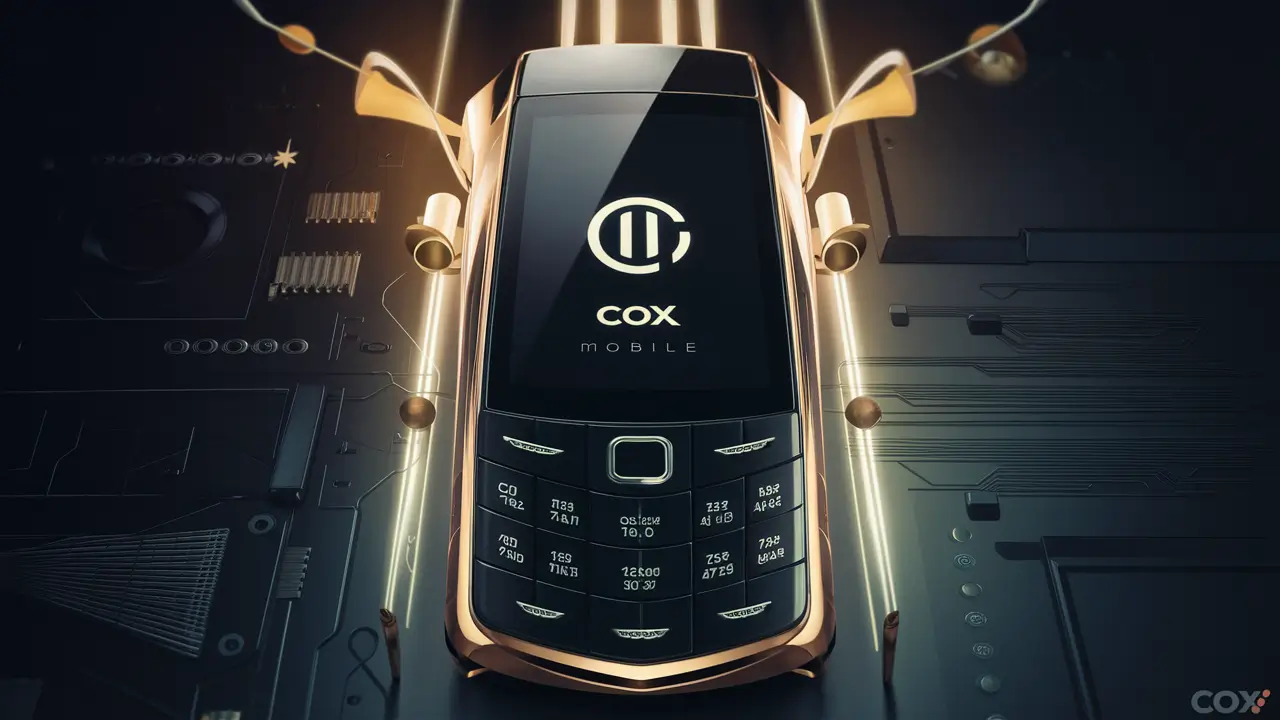
Cox Mobile is a mobile virtual network operator (MVNO) that leverages the robust network infrastructure of a major carrier to offer competitive wireless plans. It's designed for existing Cox internet customers, providing an integrated bundle of services for potential savings and simplified billing.
What is Cox Mobile?
Cox Mobile is a mobile virtual network operator (MVNO) that provides wireless phone and data services. Unlike traditional carriers that own and operate their own cellular towers and infrastructure, Cox Mobile partners with a major national carrier to utilize its existing network. This allows Cox to offer competitive mobile plans, often with attractive bundle deals for existing Cox internet subscribers, without the immense cost of building and maintaining its own network. In essence, Cox Mobile acts as a reseller of wireless services, leveraging the coverage and reliability of its partner network to serve its customers.
How Cox Mobile Works: The MVNO Model Explained
Understanding the MVNO model is key to grasping what Cox Mobile offers. An MVNO, or Mobile Virtual Network Operator, is a wireless communications services provider that does not own the wireless network infrastructure it uses. Instead, it leases network capacity from one of the major mobile network operators (MNOs) – in Cox Mobile's case, this is typically Verizon's network. This leasing arrangement allows MVNOs to bypass the significant capital expenditure associated with building and maintaining cell towers, spectrum licenses, and core network facilities. They focus on customer acquisition, service plans, billing, and customer support, while the underlying network operations are handled by the MNO.
For Cox Mobile, this means that when you use their service, your calls, texts, and data are actually being transmitted over Verizon's 4G LTE and 5G networks. This partnership is mutually beneficial: Cox gains a ready-made product to offer its customer base, and Verizon gains additional revenue streams and a broader market reach through Cox's existing customer relationships. The customer, in turn, can benefit from potentially lower prices and bundled services that might not be available directly from the MNO.
The MVNO model has become increasingly popular in the telecommunications industry. It fosters competition by allowing smaller or specialized providers to enter the market without the prohibitive infrastructure costs. This competition often leads to more innovative plans, better pricing, and a wider variety of service options for consumers. Cox Mobile is a prime example of this strategy, aiming to provide a seamless and cost-effective mobile solution for its broadband customers.
Cox Mobile Plans and Pricing: What to Expect in 2025
Cox Mobile's strategy revolves around offering straightforward, value-oriented mobile plans, often with a strong emphasis on bundling with their existing internet services. As of 2025, their plan structure typically includes unlimited data options, with varying tiers of premium data and hotspot capabilities. It's important to note that specific pricing and plan details can fluctuate, and it's always best to check the official Cox Mobile website for the most up-to-date information. However, we can outline the general categories of plans and pricing structures you can expect.
Unlimited Plans
Cox Mobile generally offers a few tiers of unlimited plans, designed to cater to different usage needs. The core offering is usually a base unlimited plan, followed by premium versions that include more high-speed data before potential throttling and larger mobile hotspot allowances. These plans are attractive for users who stream a lot of video, frequently use their phones for work, or have multiple devices that rely on mobile data.
Key features typically found in unlimited plans include:
- Unlimited Talk and Text: Standard across most mobile plans today, this is a given.
- Unlimited Data: This means you can use as much data as you need without incurring overage charges. However, there's usually a threshold for "premium" or "high-speed" data.
- Premium Data Threshold: After a certain amount of high-speed data usage (e.g., 50GB, 100GB), your data speeds might be temporarily reduced during times of network congestion. This is a common practice among many carriers, including MVNOs.
- Mobile Hotspot: Most unlimited plans include a certain amount of high-speed data for mobile hotspot usage, allowing you to connect other devices to your phone's internet connection. The amount of high-speed hotspot data varies significantly between plans.
- 5G Access: With plans leveraging Verizon's network, 5G access is typically included where available, offering faster download and upload speeds.
Pricing in 2025 for these unlimited plans generally falls within a competitive range for MVNOs. You might see prices starting around $45-$50 per line for a basic unlimited plan, increasing to $60-$75 or more for premium unlimited plans with higher data caps and hotspot allowances. These prices are often presented on a per-line basis, with discounts available for adding more lines, though Cox Mobile's primary focus is often on single-line or two-line users within a household.
Data-Only Plans (for Tablets and Hotspots)
While Cox Mobile primarily targets smartphone users, they may also offer data-only plans suitable for tablets, mobile hotspots, or other data-dependent devices. These plans are typically priced based on the amount of data you choose, rather than unlimited usage. This can be a more cost-effective option for users who only need data for specific devices and don't require a full-fledged cellular plan.
Features of data-only plans might include:
- Tiered Data Allowances: Plans could start with options like 5GB, 10GB, 20GB, or more per month.
- Per-GB Pricing: The cost per gigabyte can be quite competitive, especially when compared to the cost of adding a tablet to a major carrier's plan.
- No Talk/Text: These plans are solely for data transmission.
- Device Compatibility: Ensure your device is compatible with the network and the specific data plan.
Pricing for these plans would be considerably lower than unlimited smartphone plans, likely ranging from $10-$15 for smaller data buckets to $30-$50 for larger data allowances, depending on the specific offering.
Bundle Discounts with Cox Internet
The most significant selling point for Cox Mobile is its integration with Cox Communications' existing internet services. Cox heavily promotes bundle discounts, where customers who subscribe to both Cox internet and Cox Mobile can receive a monthly discount on their mobile bill. This is a strategic move to increase customer loyalty and provide a more attractive overall value proposition.
How the bundling works:
- Monthly Savings: The discount amount can vary but is often a significant reduction, potentially saving $10-$20 per month per line, or a fixed discount on the total mobile bill.
- Simplified Billing: Having all your Cox services consolidated into a single bill can simplify household management.
- Exclusive Offers: Sometimes, bundled customers might gain access to exclusive promotions or priority support.
For existing Cox internet customers, these bundle discounts can make Cox Mobile a very compelling option compared to other MVNOs or even major carriers, especially if their mobile needs align with the available plans. For instance, a customer paying $70 for an unlimited plan might see that price drop to $50 or $55 when bundled with their Cox internet service.
Network Coverage: Relying on a Major Carrier
One of the most critical aspects of any mobile service is network coverage. Cox Mobile, as an MVNO, does not operate its own cell towers. Instead, it relies entirely on the network of a major carrier. In the United States, Cox Mobile has historically partnered with Verizon for its network coverage. This is a significant advantage, as Verizon is widely recognized for having one of the most extensive and reliable 4G LTE and increasingly robust 5G networks across the country.
What this means for Cox Mobile customers:
- Extensive Reach: Verizon's network provides strong coverage in most urban, suburban, and rural areas. This means that wherever Verizon has service, Cox Mobile customers will likely have service.
- Reliability: Verizon is often lauded for its network reliability, meaning fewer dropped calls and consistent data speeds in many locations.
- 5G Availability: As Verizon continues to expand its 5G network, Cox Mobile users will benefit from these advancements, experiencing faster speeds and lower latency in areas where 5G is deployed.
- Potential for Congestion: While Verizon's network is robust, it's important to understand that MVNO customers might experience deprioritization during times of extreme network congestion. This means that if the network is overloaded, priority might be given to direct Verizon customers before MVNO customers. However, for most users and in most situations, this difference is often negligible.
Checking Coverage: Before committing to Cox Mobile, it is highly recommended to use Cox's online coverage map tool or Verizon's coverage map to verify service availability in your specific area. This is crucial, as even the best networks have dead zones or areas with weaker signals.
The reliance on a major carrier's network is a double-edged sword for MVNOs. It drastically reduces operational costs and allows for competitive pricing, but it also means the MVNO has limited control over network performance and expansion. However, by partnering with a carrier like Verizon, Cox Mobile ensures its customers are on a network that is generally considered top-tier in terms of coverage and reliability.
Device Options: Bringing Your Own or Buying New
When you switch to Cox Mobile, you generally have two primary options for your mobile device: you can bring your own compatible phone (BYOD - Bring Your Own Device) or purchase a new device directly through Cox Mobile.
Bring Your Own Device (BYOD)
This is often the most popular and cost-effective option for many users. If you already own a smartphone that is unlocked and compatible with Cox Mobile's network (which operates on Verizon's infrastructure), you can simply activate it with a Cox Mobile plan. This saves you the upfront cost of purchasing a new phone.
To bring your own device, you'll typically need to:
- Check Compatibility: Cox Mobile provides tools on its website to check if your current phone is compatible. This usually involves entering your phone's IMEI (International Mobile Equipment Identity) number. Devices that are compatible with Verizon's network are generally compatible with Cox Mobile.
- Unlock Your Phone: Ensure your current phone is unlocked from your previous carrier. Most carriers will unlock a phone after a certain period of service or if it's fully paid off.
- Get a SIM Card: Cox Mobile will provide you with a SIM card (or an eSIM if your phone supports it) that you'll need to insert into your device to connect to their network.
- Activate Your Service: Follow the provided instructions to activate your SIM card and transfer your existing phone number if desired.
Many popular smartphones, including recent models from Apple (iPhones) and Samsung (Galaxies), are typically compatible. Older or less common devices might require more careful checking.
Purchasing a New Device
If you need a new phone or wish to upgrade, Cox Mobile also offers a selection of new smartphones for purchase. These devices can often be bought outright or financed through Cox Mobile, similar to how major carriers offer payment plans.
Options for purchasing new devices:
- Selection: Cox Mobile typically offers a range of popular smartphones from brands like Apple and Samsung. The selection might not be as extensive as a direct carrier store, but it usually covers the most in-demand models.
- Payment Plans: You can often spread the cost of a new phone over 24 or 36 months, with the monthly device payment added to your Cox Mobile bill. Interest rates or financing terms will apply.
- Promotional Offers: Keep an eye out for any promotional deals Cox Mobile might offer on new device purchases, such as trade-in credits or discounts on specific models.
When considering purchasing a new device, it's essential to compare the total cost over the financing period against purchasing the phone unlocked from a manufacturer or another retailer and then using your BYOD option. Sometimes, buying unlocked and bringing your own device can be more economical in the long run.
Customer Service and Support for Cox Mobile
Customer service is a crucial aspect of any telecommunications provider, and Cox Mobile aims to offer support through various channels. Given that Cox is primarily an internet and cable provider, their mobile customer service infrastructure is integrated with their existing support systems.
Channels for Support:
- Online Support: Cox Mobile's website is usually the first stop for information. It typically features FAQs, troubleshooting guides, plan details, and tools for managing your account.
- Phone Support: Dedicated customer service phone lines are available for Cox Mobile inquiries. These lines are staffed by representatives who can assist with billing, plan changes, technical issues, and new service activation.
- In-Person Support (Limited): While Cox has physical retail stores for its internet and cable services, dedicated Cox Mobile stores might be less common. Support might be available at select Cox retail locations or through authorized dealers.
- Chat Support: Live chat options on the Cox website can provide real-time assistance for less complex queries.
- Community Forums: Like many large companies, Cox may host online community forums where users can ask questions and share solutions, sometimes with input from official support staff.
Integration with Cox Internet Support: For existing Cox internet customers, the convenience of having their mobile service managed by the same company can be a significant advantage. If you're already familiar with Cox's customer service for your internet, the transition to managing your mobile service might be smoother. However, it's important to manage expectations; the quality and responsiveness of customer service can vary, and some users may find that MVNO support is not always as robust as that offered by major carriers directly.
Key considerations for customer service:
- Response Times: Be aware that wait times for phone support can vary, especially during peak hours.
- Issue Resolution: The ability of customer service representatives to effectively resolve technical issues or complex billing disputes is paramount.
- Knowledge Base: Ensure the support staff are well-trained on Cox Mobile's specific offerings and the underlying network they use.
Overall, Cox Mobile aims to provide accessible customer support, leveraging its established infrastructure to assist mobile customers. The effectiveness of this support is a key factor in customer satisfaction and retention.
Cox Mobile vs. Other MVNOs and Major Carriers (2025 Comparison)
To truly understand the value proposition of Cox Mobile, it's essential to compare it against other players in the mobile market. This includes other MVNOs that operate on the same networks, as well as the major carriers themselves. As of 2025, the mobile landscape is highly competitive, with numerous options catering to different needs and budgets.
Cox Mobile vs. Other Verizon MVNOs
Cox Mobile operates on Verizon's network, placing it in direct competition with other MVNOs that also use Verizon's infrastructure. Prominent examples include Visible, US Mobile, and Straight Talk (which also uses other networks). These MVNOs often compete on price and features.
Comparison Points:
- Pricing: Cox Mobile's pricing is often competitive, especially when bundled with Cox internet. Other Verizon MVNOs like Visible often offer unlimited plans at a flat rate, which can be very attractive. US Mobile offers highly customizable plans.
- Data Deprioritization: Most Verizon MVNOs, including Cox Mobile and Visible, experience data deprioritization during network congestion. Some plans from US Mobile might offer higher priority data.
- Hotspot: Hotspot allowances vary. Visible offers unlimited mobile hotspot at 5 Mbps, which is good for basic browsing but not heavy streaming. Cox Mobile's hotspot allowance depends on the specific unlimited plan.
- Bundling: Cox Mobile's primary differentiator is its bundle discount with Cox internet. Other MVNOs typically do not offer such integration with specific ISP providers.
- Device Selection: Direct purchase options for devices might be more limited with MVNOs compared to major carriers.
In 2025: Cox Mobile's edge is its bundle discount for existing Cox customers. For those not tied to Cox internet, Visible often presents a strong value for unlimited data at a fixed price. US Mobile appeals to users who want precise control over their plan.
Cox Mobile vs. Other AT&T MVNOs
While Cox Mobile uses Verizon's network, it's worth noting competitors on AT&T's network, such as Cricket Wireless, Boost Mobile (which also uses T-Mobile), and Google Fi (which uses T-Mobile and US Cellular). These offer alternatives for those who prefer AT&T's coverage in their area.
Comparison Points:
- Network: The primary difference is the underlying network. AT&T's network has strong coverage, particularly in rural areas, though Verizon often leads in overall national coverage metrics.
- Pricing & Features: Cricket Wireless offers unlimited plans with some data restrictions, similar to Cox Mobile. Boost Mobile has various prepaid and postpaid options.
- Bundling: Similar to Cox Mobile's approach, some providers might offer bundles with other services, but not typically with a major ISP like Cox.
In 2025: If AT&T coverage is superior in your area, their MVNOs would be a better choice than Cox Mobile. Otherwise, the decision hinges on specific plan features and pricing.
Cox Mobile vs. Other T-Mobile MVNOs
T-Mobile's network has significantly improved, especially with its 5G expansion. MVNOs on T-Mobile include Mint Mobile, Google Fi, and Boost Mobile. These are strong contenders, especially for users prioritizing 5G performance.
Comparison Points:
- 5G Network: T-Mobile generally leads in 5G coverage and speed. If 5G is your priority, T-Mobile MVNOs are compelling.
- Pricing: Mint Mobile is known for its highly competitive pricing, especially for multi-month plans.
- Data Policies: MVNOs on T-Mobile often have different data prioritization policies.
In 2025: For users seeking the best 5G experience and potentially lower prices, T-Mobile MVNOs like Mint Mobile are very attractive. Cox Mobile's advantage remains its integration with Cox internet services.
Cox Mobile vs. Major Carriers (Direct Comparison)
Comparing Cox Mobile directly to major carriers like Verizon, AT&T, and T-Mobile reveals the core trade-offs of the MVNO model.
Table: Cox Mobile vs. Major Carriers (Illustrative 2025 Comparison)
| Feature | Cox Mobile (on Verizon) | Verizon (Direct) | AT&T (Direct) | T-Mobile (Direct) |
|---|---|---|---|---|
| Network | Verizon | Verizon | AT&T | T-Mobile |
| Pricing (Unlimited) | Competitive, especially with bundle discount ($45-$70/line) | Higher ($70-$90+/line) | Higher ($75-$95+/line) | Higher ($70-$90+/line) |
| Data Deprioritization | Likely (standard for MVNOs) | Premium data tiers, less likely to deprioritize | Premium data tiers, less likely to deprioritize | Premium data tiers, less likely to deprioritize |
| Hotspot Data | Limited high-speed allowance | Higher allowances, often faster speeds | Higher allowances, often faster speeds | Higher allowances, often faster speeds |
| Device Financing | Limited selection, potential financing | Extensive selection, robust financing options | Extensive selection, robust financing options | Extensive selection, robust financing options |
| Customer Service | Integrated with Cox, can be variable | Dedicated, often premium support | Dedicated, often premium support | Dedicated, often premium support |
| Bundling Benefits | Significant discount with Cox Internet | Bundles with other Verizon services (e.g., streaming) | Bundles with other AT&T services (e.g., streaming) | Bundles with other T-Mobile services (e.g., streaming) |
In 2025: Major carriers offer a more premium experience with better device options, higher data priority, and more robust customer service, but at a significantly higher cost. Cox Mobile's niche is clear: it's for existing Cox internet customers seeking a more affordable mobile solution without sacrificing access to a top-tier network.
Pros and Cons of Cox Mobile
Like any service, Cox Mobile comes with its own set of advantages and disadvantages. Understanding these can help potential customers make an informed decision about whether it's the right fit for their needs.
Advantages
- Bundle Discounts: This is arguably the biggest draw. Existing Cox internet customers can often save a considerable amount on their monthly mobile bill by bundling. This integration simplifies billing and offers direct financial benefits.
- Leverages Verizon's Network: By using Verizon's infrastructure, Cox Mobile customers benefit from extensive national coverage and generally reliable service, including access to 5G where available. This means you're getting a quality network without paying the premium price of direct Verizon plans.
- Competitive Pricing (for Bundled Users): When bundled, Cox Mobile's unlimited plans can be very competitively priced, often undercutting the direct offerings of major carriers.
- Simplified Billing: Consolidating internet and mobile services onto a single Cox bill can be convenient for household budget management.
- BYOD Friendly: The option to bring your own compatible device makes switching easier and more affordable for those who don't need a new phone.
Disadvantages
- Limited to Cox Internet Customers: The primary benefit (bundle discount) is only available to existing Cox internet subscribers. Those without Cox internet may find other MVNOs or carriers offer better standalone deals.
- Potential Data Deprioritization: As an MVNO on Verizon's network, Cox Mobile data speeds may be reduced during times of high network congestion, especially on the base unlimited plans.
- Less Extensive Device Selection: While new phones can be purchased, the selection might be more limited compared to direct offerings from major carriers, and financing terms may vary.
- Customer Service Variability: While Cox aims for good customer service, the experience can be inconsistent. Some users might find it less streamlined or responsive than dealing directly with a major carrier.
- No International Perks (Typically): Many major carriers offer specific international calling or roaming packages. MVNOs like Cox Mobile may have less robust or more expensive international options.
- Limited Control Over Network: Cox Mobile has no direct control over network upgrades, expansion, or policies; they are entirely dependent on Verizon's decisions.
Is Cox Mobile Right for You? Making the Decision
Deciding whether Cox Mobile is the right choice for you hinges on a few key factors, primarily your existing internet service and your mobile usage habits. As of 2025, the landscape of mobile carriers is vast, and a personalized approach is necessary.
Cox Mobile is likely a good fit if:
- You are a current Cox Internet customer: The bundle discounts are a significant incentive. If you're already paying for Cox internet, adding Cox Mobile can lead to substantial savings on your wireless bill.
- You prioritize affordability and network quality: You want access to a strong, reliable network like Verizon's without paying the premium price associated with direct Verizon plans.
- Your mobile data usage is moderate to high, but you don't require unlimited premium data or extensive hotspot usage: Cox Mobile's unlimited plans, especially when bundled, offer good value for typical smartphone users.
- You are comfortable with bringing your own device (BYOD): This is often the most cost-effective way to use Cox Mobile.
- You value consolidated billing: Having your internet and mobile services on one bill can simplify your financial management.
Cox Mobile might NOT be the best fit if:
- You are not a Cox Internet customer: The primary financial incentive is lost, and you might find better standalone deals with other MVNOs or carriers.
- You need unlimited premium data and extensive high-speed hotspot usage: While Cox offers unlimited plans, the high-speed data thresholds and hotspot allowances might be lower than what some major carriers or specialized MVNOs offer.
- You require the absolute best network performance and priority: If you are in an area with extreme network congestion or demand the highest possible data speeds and reliability without any potential for deprioritization, a direct major carrier plan might be preferable.
- You want a vast selection of the latest devices with flexible financing: Major carriers often have a wider array of phones and more established financing programs.
- You frequently travel internationally: Cox Mobile's international plans may be less competitive than those offered by major carriers.
To make your decision:
- Check your Cox Internet status: Are you a current subscriber?
- Assess your mobile data usage: How much data do you typically use per month? Do you rely heavily on mobile hotspots?
- Verify coverage: Use Cox's coverage map (which reflects Verizon's network) to ensure service is strong in your most frequented locations.
- Compare specific plans: Look at the exact pricing, data allowances, and hotspot limits for Cox Mobile's plans and compare them to other MVNOs and major carriers that fit your needs.
- Calculate the total cost: Factor in any bundle discounts for Cox internet customers.
By carefully considering these points, you can determine if Cox Mobile aligns with your budget, usage patterns, and overall telecommunications needs.
Getting Started with Cox Mobile: A Step-by-Step Guide
Switching to Cox Mobile is a straightforward process, especially for existing Cox internet customers. Here's a step-by-step guide to help you get started:
Step 1: Check Eligibility and Compatibility
For Existing Cox Internet Customers:
- Visit the Cox Mobile website and look for the eligibility checker. You'll likely need to log in to your Cox account or provide your address to confirm you're in a service area and eligible for the bundle discount.
Device Compatibility:
- If you plan to bring your own device (BYOD), navigate to the "Bring Your Own Phone" or "Check Device Compatibility" section on the Cox Mobile website.
- Enter your phone's IMEI number. You can usually find this by dialing *#06# on your phone or by checking your phone's settings (About Phone or General > About).
- The tool will tell you if your device is compatible with Cox Mobile's network (Verizon's network). Ensure your phone is unlocked from any previous carrier.
Step 2: Choose Your Plan
Based on your usage needs, select the Cox Mobile plan that best suits you. Consider:
- Unlimited Plans: Evaluate the premium data thresholds and mobile hotspot allowances for each unlimited tier.
- Data-Only Plans: If you need a plan for a tablet or hotspot device, choose the data amount required.
- Number of Lines: Determine how many lines you need.
Remember to factor in the bundle discount if you are a Cox internet customer. The website will typically show you the final price after applying any applicable discounts.
Step 3: Select Your Device
- Bring Your Own Device (BYOD): If your phone is compatible, you'll proceed to the SIM card/activation stage.
- Purchase a New Device: If you need a new phone, browse the available selection on the Cox Mobile website. You can choose to pay for it outright or opt for a financing plan. Follow the prompts to complete the device purchase.
Step 4: Get Your SIM Card and Activate
For BYOD:
- If you're bringing your own phone, Cox Mobile will provide you with a SIM card. This might be shipped to your home, or you might be able to pick one up at a Cox store or authorized location.
- Once you have the SIM card, follow the activation instructions provided. This usually involves inserting the SIM card into your phone and visiting a Cox Mobile activation portal online or calling a dedicated activation number.
For New Devices:
- If you purchase a new device from Cox Mobile, it will typically come with a pre-installed SIM card or instructions on how to obtain and activate one. The activation process will be similar to the BYOD scenario.
Step 5: Transfer Your Phone Number (Optional)
If you wish to keep your current phone number, you'll need to port it over to Cox Mobile. During the activation process, you will be prompted to provide information from your previous carrier account to authorize the number transfer. Ensure you do not cancel your old service until the porting process is complete.
Step 6: Set Up Billing and Account Management
Your Cox Mobile service will be added to your existing Cox Communications bill if you're bundling. If not, you'll set up separate billing. You can manage your account, view usage, and make payments through your Cox online account portal.
By following these steps, you can successfully switch to Cox Mobile and start enjoying its services, potentially with significant savings if you're a Cox internet subscriber.
The Future of Cox Mobile: Potential Growth and Evolution
The mobile telecommunications market is in constant flux, driven by technological advancements, evolving consumer demands, and competitive pressures. Cox Mobile, as a relatively newer entrant in the MVNO space, has several avenues for potential growth and evolution in the coming years.
Key areas for future development:
- Expansion of 5G Capabilities: As Verizon continues to expand its 5G network, Cox Mobile will benefit from this infrastructure. Future plans may offer enhanced 5G features, such as wider availability of mmWave 5G for ultra-high speeds in dense urban areas, or more integrated 5G hotspot capabilities.
- Enhanced Bundling Options: Cox Communications could explore deeper integration with its other services, such as offering bundled discounts that include streaming services, smart home devices, or even enhanced internet packages. This would further solidify its position as a comprehensive home and mobile solutions provider.
- More Diverse Plan Structures: While current plans are straightforward, Cox Mobile might introduce more specialized plans. This could include options for heavy international travelers, plans tailored for families with specific usage needs, or even pay-as-you-go options for very light users.
- Improved Device Offerings and Financing: As Cox Mobile gains more traction, it might expand its selection of available devices and offer more competitive financing deals, potentially rivaling those of major carriers.
- Focus on Customer Experience: Continued investment in customer service channels, self-service tools, and proactive support could differentiate Cox Mobile and improve customer retention. This might include AI-powered support tools or more personalized service offerings.
- Geographic Expansion (Indirect): While Cox Communications operates in specific geographic regions, the underlying Verizon network provides national coverage. As Cox Communications expands its broadband footprint, Cox Mobile's reach within those new areas will naturally grow.
- Potential for Standalone Growth: While the bundle discount is a primary driver, Cox Mobile could also focus on attracting non-Cox internet customers by highlighting its competitive pricing and the quality of the Verizon network. This would require more aggressive standalone marketing and potentially unique plan offerings.
The success of Cox Mobile will likely depend on its ability to remain agile, adapt to market changes, and continue to offer compelling value, especially to its existing customer base. By leveraging the strengths of its partner network and its own established customer relationships, Cox Mobile is well-positioned to carve out a significant niche in the competitive U.S. mobile market.
Conclusion
In summary, Cox Mobile stands as a compelling option in the U.S. wireless market, particularly for existing Cox internet subscribers. Operating as a mobile virtual network operator (MVNO), it leverages the robust and widespread network of Verizon, offering customers access to reliable 4G LTE and 5G service without the premium price tag often associated with direct carrier plans. The primary advantage of Cox Mobile lies in its attractive bundle discounts, which can significantly reduce monthly wireless expenses for those who consolidate their Cox internet and mobile services. This integration simplifies billing and provides a clear financial incentive for loyalty.
While Cox Mobile offers competitive unlimited plans, it's crucial for consumers to understand its positioning. It excels for users who prioritize affordability and network quality through a major carrier, especially when bundled. However, for individuals who require unlimited premium data with no deprioritization, extensive high-speed mobile hotspot data, or the widest selection of the latest devices with flexible financing, direct plans from major carriers or specialized MVNOs might be more suitable. As of 2025, Cox Mobile's strength is its ability to offer a high-quality network experience at a reduced cost for its core demographic.
Ultimately, the decision to switch to Cox Mobile should be based on a careful assessment of your individual needs. Evaluate your current internet provider, your monthly data consumption, your hotspot usage, and your budget. By comparing Cox Mobile's offerings against other providers and factoring in the significant bundle discounts available to Cox internet customers, you can determine if this MVNO aligns with your telecommunications goals. For many, it represents a smart, cost-effective way to stay connected on a reliable network.

